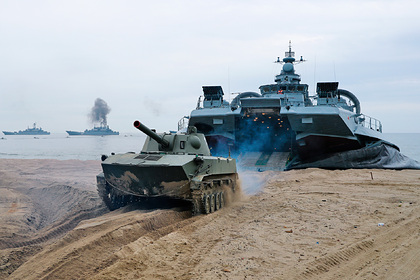Russia's strengthening of the land defense of the Kaliningrad region puts NATO in a "deadly dilemma", says columnist Sebastien Roblin in the pages of the American magazine The National Interest, justifying, in particular, the potential need for a" physical occupation " of the Russian region.
According to the publication, the increased presence of the Russian military in the region "creates serious operational dilemmas for the alliance in the event of a conflict," since rocket fire from the Kaliningrad region will hinder "the movement of air, sea and land forces [NATO] through Poland and the Baltic Sea."
"The scale of these threats means that NATO will have to devote significant resources to neutralizing them-either by deterring the Kaliningrad garrison and suppressing mobile rocket launchers, artillery, aircraft, sensors and electronic warfare systems inside the exclave, or by alternately sending troops to besiege and physically occupy it," the publication says.
Among the weapons that, as the magazine believes, can pose a threat to the alliance, are, in particular, diesel-electric submarines, missile and anti-submarine corvettes and large landing ships, as well as operational-tactical missile systems (OTRK) "Iskander-M", anti-ship missile systems (PKRK) "Bal" and "Bastion-P", air defense systems (air defense) S-300 "Favorit", S-400 "Triumph" and "Pantsir-S1", coastal missile systems (DBK) "Bastion", Su-24M bombers, Su-27 and S-30SM fighters, Ka-27M helicopters and unmanned aerial vehicles (UAVs) "Outpost".
In February, Izvestia, citing sources in the Russian Defense Ministry, reported that on the basis of the 79th separate motorized rifle brigade, it is planned to form a regiment that will strengthen the land protection of the Kaliningrad region. The place of deployment of this regiment was named the city of Sovetsk. According to the newspaper, the regiment, along with a number of other units, will become part of the motorized rifle division. According to military historian Dmitry Boltenkov, "in the end, they will make it so that part of the Russian troops will be focused on Poland, and the other - on Lithuania."
Ivan Potapov


